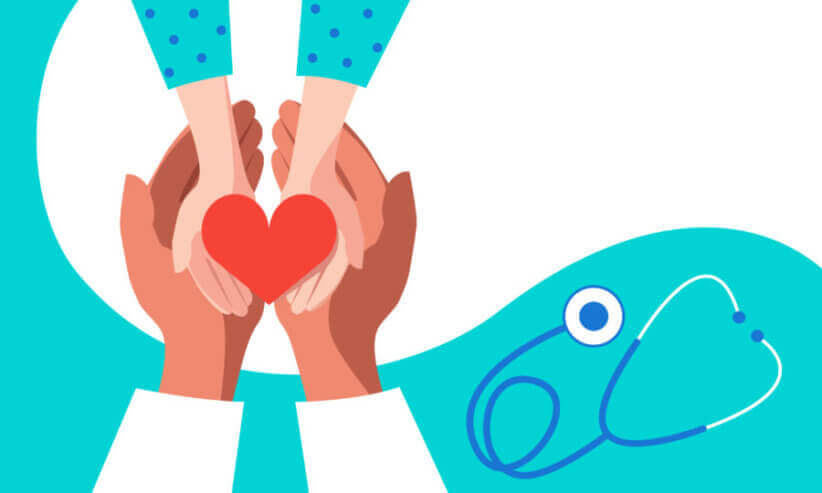
Why Do Kids Get Nosebleeds? An Expert Weighs In On How to Curb Them
Nosebleeds are a common issue, especially in kids and especially in the cold, dry winter months. But even knowing this, it can be scary to find that your kid has a bloody nose.
While many nosebleeds are one-off problems, other kids get nosebleeds pretty frequently. What causes nosebleeds, and when should you be concerned about them?
We sat down with Dr. Alyssa Hackett, pediatric otolaryngologist (ear, nose and throat doctor) with ENT and Allergy Associates, to talk about what causes nosebleeds in kids and how to curb them.
Psst… Here’s what you need to know about the Pregnant Workers Fairness Act.
What Causes Frequent Nosebleeds In Kids?
One of the most common causes of nosebleeds in children is caused by the dryness in the air that occurs, for example, in the fall or when the heat gets turned on in your building in the winter months.
“That dryness is important because it can dry out the mucus membranes, specifically the ones that are in the very front of the nose, where there are some fragile blood vessels that can crack open and bleed,” Hackett says.
You also may notice that your child with seasonal allergies tends to get a lot of nosebleeds.
“It’s not that the allergies cause the nosebleeds,” Hackett says. “But if you’re constantly rubbing your nose, that will be a triggering point.”
Other families may notice frequent nosebleeds in their children during the summer.
“If you’re running around in the heat, your body flushes everywhere, including these blood vessels in the front of the nose,” Hackett says.
Overall, there are many factors that can trigger nosebleeds, and they’re not limited to a single season.
“We see nosebleeds year–round,” Hackett says. “Not just in the fall and winter.”
What Steps Can Parents Take At Home to Mitigate Nosebleeds?
Increasing the moisturization and cleanliness of the nose can be helpful, especially in drier parts of the year. In winter months, mucus can dry up on the inside of the nostril on fragile skin.
“They can act like knives,” Hackett says. “They just sort of cut right through those blood vessels.”
Using an ointment like Aquaphor can help clean out some of this dried up mucus and add a protective layer to the inside of the nostril. A saltwater spray is also a good way to add moisturization into the nose throughout the day.
Hackett says the key to these at-home treatments is sticking to them.
“You have to be consistent with it,” Hackett says.
To build this habit, Hackett recommends keeping the bottle of nasal spray next to the hand soap in the bathroom and encouraging kids to use it after washing their hands.
This method adds the step into their bathroom routine and “it becomes a little less burdensome” than telling them to do it three or four times a day, Hackett says.
When Should Parents Be Concerned About Frequent Nosebleeds?
In a majority of cases, nosebleeds even as frequent as once a week is “more of an inconvenience rather than it is dangerous,” Hackett says.
There are rare instances when frequent nosebleeds are indicative of a larger problem, but those cases are typically accompanied by additional symptoms.
For example, if you have a child who has easy bleeding and bruising in other places on their body, it could be a sign of some other blood disorder and it’s a good idea to get a pediatrician involved to run some blood work.
Hackett also mentioned if you have a teenage boy who gets massive one-sided nosebleeds, that’s worth getting looked at; it could be a sign of juvenile nasopharyngeal angiofibroma, a rare tumor that generally affects teenage boys.
Even though most nosebleed cases aren’t cause for immediate concern, families can see a doctor and get reassurance at any point.
“Nosebleeds are a really common issue,” Hackett says. “So anytime families are worried, we’re always happy to check it out.”













